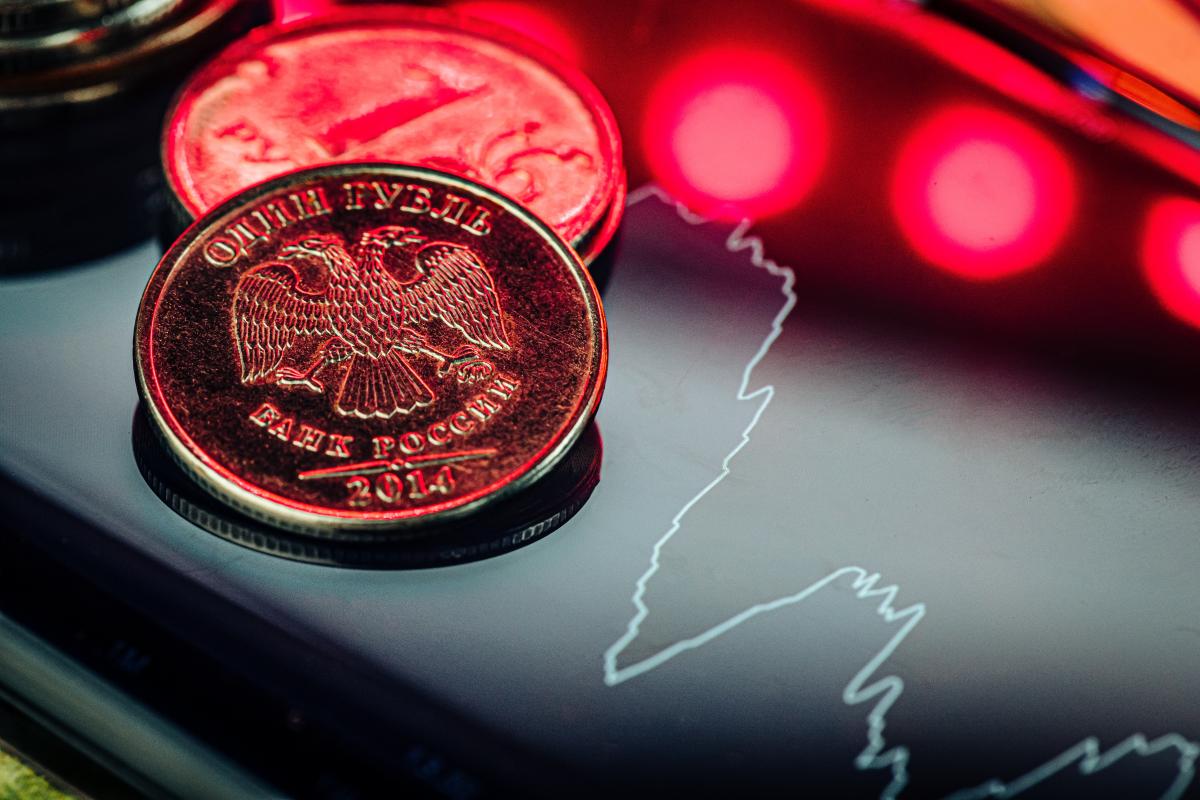“It is noted that two-thirds of Russians are still confident in the future”, — write: www.unian.ua
 The largest companies are reviewing their strategies / photo ua.depositphotos.comThe Russian Federation’s full-scale invasion of Ukraine caused an economic boom based on government incentives. For almost three years, there have been more and more signs that the bill will soon have to be paid.
The largest companies are reviewing their strategies / photo ua.depositphotos.comThe Russian Federation’s full-scale invasion of Ukraine caused an economic boom based on government incentives. For almost three years, there have been more and more signs that the bill will soon have to be paid.Bloomberg writes that the mood in Russian cities remains high – restaurants are full, shops are open, but the combination of record high interest rates and persistent inflation threatens further expected growth.
“A relatively good period for the Russian economy, which was based on previously accumulated resources, is over,” says Oleg Vyugin, an economist and former high-ranking official of the central bank. “High inflation is eating away at all this seemingly short-term success.”
In addition, Russia faces sanctions, a weakened currency, unclear prospects for oil prices, fears that the main partner – China – will not cope with economic problems
So far, the economy continues to function, despite Western sanctions, and along with high wages, this helps soften public opposition to the war. Two-thirds of Russians are still confident in the future. Consumer sentiment, although down, remains higher than at any time since 2022.
“If we talk about the middle class, it feels good now,” says Serhiy Dmitriev, an information technology specialist. “High interest rates have failed to contain price growth, which is more than double the target.”
Record borrowing costs have already begun to show. According to the research group “Avtostat”, Russian car dealerships are threatened by a wave of bankruptcies. The agricultural sector is also experiencing difficulties.
Even the largest companies are reviewing their strategies. State-owned pipeline operator PJSC Transneft and JSC Russian Railways have sharply cut investment programs, partly due to the cost of borrowing.
Private companies such as PJSC Severstal steel company and PJSC HMC Norilsk Nickel mining company are also cutting costs. United Co. Rusal International PJSC, a leading aluminum producer, is considering cutting production by more than 10%, citing economic situation.
The Central Bank predicts inflation at the level of 4.5-5% until the end of the year, and the key rate at the level of 17-20% on average.
“This will be a year of belt-tightening,” says Sofia Donets, economist at T-Investments. “Lenders win, and borrowers can hardly imagine how they will live.”
For consumers and businesses, this means a reduction in credit for purchases and investments. The collapse of oil prices is one of the biggest risks for the economy in 2025, Donets believes. According to her, if the price drops even lower, Russia will have to make sacrifices.
Analysts of “Promsvyazbank” believe that a quick end to the war can contribute to the strengthening of the ruble, the return of foreign investors and export revenue. If the negotiations drag on, then inflation and tough policies are likely to persist, which will lead to a slowdown in growth.
A significant weakening of the ruble against the dollar and problems with cross-border payments caused by the threat of sanctions from the US are also having an impact.
“The risk of recession is also the highest in the last three years,” Donets says. “There is a possibility of a drop in some quarters next year. So far, our main forecast is growth until the end of next year, slightly below 1%.”
Economy of Russia – the latest newsThe fall of the ruble in the Russian Federation has accelerated, and the central bank is unable to control inflation. However, Russia does not face significant constraints on budget financing or military spending.
Analysts noted that the Central Bank of Russia is failing to curb inflation, despite raising the key rate to 21%. In November, general inflation was 8.9% in annual terms, and core inflation was 8.2%.
Key factors include near-double-digit wage growth, military spending, a devaluation of the ruble and a 61% increase in private sector lending, or nearly $650 billion, from mid-2022.
You may also be interested in news:
- Russian smugglers import luxury cars from Europe, despite sanctions, – FT
- To stop the war in Ukraine, it is necessary to really strengthen the oil sanctions, – Bloomberg
- The United States is preparing new sanctions against tankers carrying Russian oil, Reuters
